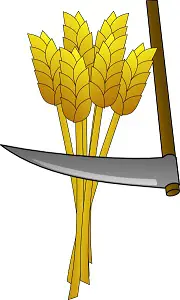Greek Daily Life
 The daily life of an ancient Greek was very similar to our lives today. Of course, ancient Greeks did not have smart phones, computers, televisions, or electricity. But they did live in highly organized cities, where they could go see a play or a sporting event, or attend a number of different schools, or could join the army and become a soldier.
The daily life of an ancient Greek was very similar to our lives today. Of course, ancient Greeks did not have smart phones, computers, televisions, or electricity. But they did live in highly organized cities, where they could go see a play or a sporting event, or attend a number of different schools, or could join the army and become a soldier.
Greek society was similar to the society that most of us enjoy today because it was full of a rich culture. This means that ancient Greeks could enjoy exotic foods, good music, and read literature, just as we do today.

Government And Citizenship
Greek society was also governed much like ours is today. Most early cities were called city-states, which kind of had their own government. The head of the government (called the polis) was located in the center of the city, which usually surrounded the acropolis, which was a high area that held a temple and religious shrines.
Greek cities also had an agora, which was a central marketplace where people could go to shop, perform business transactions, or meet other people and socialize. These were a lot like shopping malls or marketplaces today.

Both Greek men and women could be citizens of the state, so they could enjoy privileges like protection from violence. But a major difference between ancient Greece and our world today is that they had slaves, who were considered property of other Greek citizens. Slaves could not vote, hold property, or participate in civic life, and they had to do whatever their owner told them to do.
One of the biggest cities in ancient Greece was Athens. At the height of the Athenian empire, around 200,000 people lived there! You can imagine how organized the city and government had to be in order to feed, house, keep control of, and to take care of that many people every day.

Agriculture And Industry
 Most of the people in ancient Greece had jobs much like we do today. Many people were farmers, who sold or traded their fruits and vegetables at market in order to get what they needed to take care of their family.
Most of the people in ancient Greece had jobs much like we do today. Many people were farmers, who sold or traded their fruits and vegetables at market in order to get what they needed to take care of their family.
There was also a wealthy class of Greeks, who didn’t need to work as much, and who could afford to send themselves or their children to schools. Some of these schools were like Plato’s Academy, where they could learn about philosophy and intellectual reasoning. Other schools were specialized, like schools for painting or sculpture.
There was also a set of skilled craftsmen in ancient Greece. These artisans were the ones who created beautiful sculptures, decorated the inside walls of houses with elaborate paintings, or created mosaics with thousands of small tiles. Other craftsmen made pottery, coins and jewelry, and other items that were used on a daily basis in ancient Greece.

Hellenistic Greece
In later Greek history, which is called Hellenistic Greece, the economy expanded to areas in North Africa and Persia. Because of this, Greek products were in higher demand than before. Greeks began planting new crops and using new agricultural techniques. They also grew new and different wines, and invented better irrigation techniques in order to water their crops.
In the Hellenistic Age, Greeks also invented a new money system, built more roads and canals, and cleared the seas of pirates.

A Day In The Life Of An Ancient Greek
Greek houses were usually small, although they could be large if the family had enough money, and some were even two stories high. The thick walls of the houses were made out of mud and clay, and the floors were packed dirt. Some of the richer families could afford to decorate the inside of the walls of their houses with paintings, and some of them were able to afford to put a mosaic of tiles on the floor.
 A typical Greek would eat a lump of bread dipped in olive oil for breakfast, and the rest of the day would eat variations of grains and fish. Meat such as beef was reserved for festivals and feasts, and sugar was unknown. If the ancient Greeks ever ate anything sweet, it was because of honey.
A typical Greek would eat a lump of bread dipped in olive oil for breakfast, and the rest of the day would eat variations of grains and fish. Meat such as beef was reserved for festivals and feasts, and sugar was unknown. If the ancient Greeks ever ate anything sweet, it was because of honey.
In the winter time, fishing and farming was suspended, or stopped, so most Greeks spent a lot of their time outside meeting with friends and family or hanging out in public places, which is still true today.

Special Events
Even if the description of the daily life of an ancient Greek sounds boring, it really wasn’t. It was a simple life, which they enjoyed even more by having fun at the many different sporting events (Greeks invented the first Olympics), plays, festivals, temples, and marketplaces throughout the area



